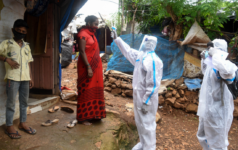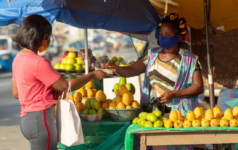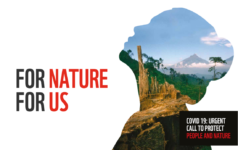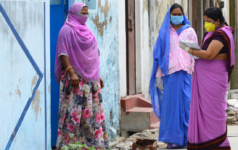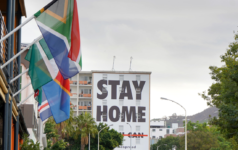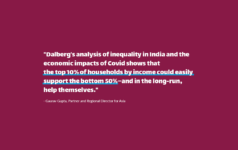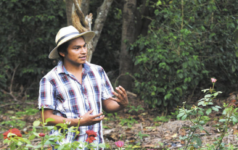Dalberg uses cookies and related technologies to improve the way the site functions. A cookie is a text file that is stored on your device. We use these text files for functionality such as to analyze our traffic or to personalize content. You can easily control how we use cookies on your device by adjusting the settings below, and you may also change those settings at any time by visiting our privacy policy page.
Despite suggestions to the contrary, Global South countries have not replicated the measures of Global North countries in response to the Covid-19 crisis. A wide variety of country-by-country measures exist, suggesting that Global South countries have accounted for their distinctive economic, social and political situations in implementing lockdowns and social distancing measures.
Developing countries have faced some criticism for indiscriminately adopting “policies deemed necessary for the hardest-hit wealthy countries,” particularly for implementing lockdowns to enforce social distancing. In doing so, they have been criticised for overlooking differences in demographics, social cultures, and the adverse socio-economic impacts of restricting physical movement.
However, according to Dalberg’s Database of Government Actions on Covid-19 in Developing Countries, the measures enacted in developing countries appear to differ by country and be less severe than those in developed countries. The database studies government actions taken in 20 Global South countries and 6 Global North countries, and suggests that Global South countries have adopted policies that are tailored towards the socio-economic realities of rigorously restricting physical movement.

Stringent national lockdowns enacted by several Global North countries have been adopted in only a few countries in the Global South. Only 7 of 20 Global South countries studied enforced complete national lockdowns: Bangladesh, Colombia, India, Morocco, Rwanda, South Africa and Sri Lanka. The other 13 Global South countries took a range of less severe measures: China, Côte d’Ivoire, Ethiopia, Guinea, Indonesia, Kenya, Malaysia, Mexico, Nigeria, Senegal, Taiwan, Thailand and the UAE. These included localized lockdowns and travel restrictions for areas that were severely affected or were witnessing a disproportionate rise in cases, and evening curfews either at a national or local level to restrict movement.
Only some Global South countries have implemented measures which characterised lockdowns in developed countries, like mandatory stay-at-home requirements and the suspension of non-essential businesses nationally. While countries like France, Spain and the United States instituted mandatory stay-at-home requirements, many Global South countries either advised populations to stay-at-home when possible or implemented mandatory stay-at-home requirements in affected areas. Non-essential businesses were suspended in all Global North countries studied except Sweden, but continued to operate in many Global South countries with limited or sometimes normal capacity.
Some measures—banning mass gatherings and closing public spaces, including closures of schools, universities, bars and other social venues—have been universally adopted. While these measures seek to restrict movement, they remain much lighter in nature than those that are typically associated with widespread lockdowns. Many of these measures are still in place and are unlikely to be completely lifted soon.
The harsh economic consequences of widespread lockdowns in Global South countries—especially the inequitable impact of restricting physical movement on populations that are already in precarious livelihoods—seems to have played a significant role in trying to contain the pandemic, despite the often-cited criticism. The emerging economic consequences might also be playing a role in restrictions being lifted despite Covid-19 cases rising in many countries.
In the coming months, as the disease takes very different courses in different countries, it will be even more important for Global South countries to adopt varied policies that are tailored to epidemiological, economic and social situations in each of their countries. Doing so can help to mitigate risks for both public health and economic outcomes as the crisis unfolds.



